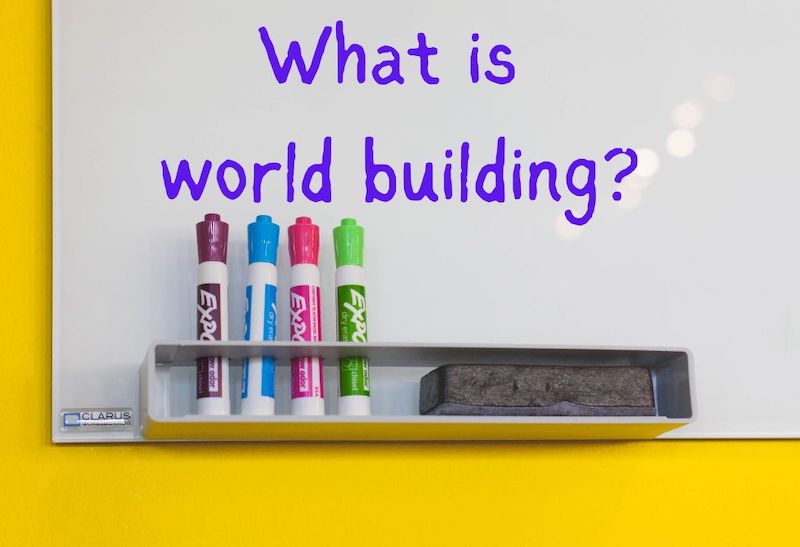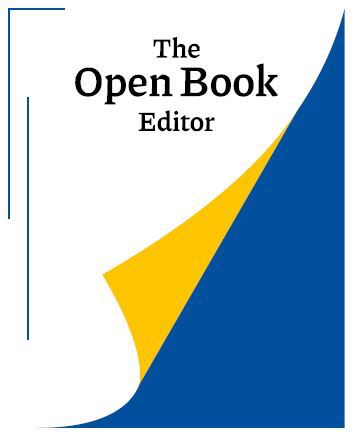World-building is an important aspect of writing a novel. How much world-building you need to do will depend on your specific book and your book’s genre. However, you should never neglect it entirely. Regardless of whether you’re writing a romance set in modern times or a sci-fi set on another planet, it’s important to create a believable world for your novel. If your world feels inauthentic or doesn’t make sense, your readers will struggle to get pulled into the story.
Read on for everything you need to know about world-building and how to create a believable world for your novel.

What is world-building?
World-building is the process by which a writer creates a fictional world for their story. They then convey that information to the reader. This can include creating intricate new geographies, politics, economies, and rules for your world. For example, Frank Herbert’s Dune novel takes place on the fictional plane of Arrakis. It has a unique geography and ecosystem, as well as accompanying politics and religious beliefs. However, creating a believable world for your novel doesn’t always have to be this grand or complex. This is especially true if you set your story in the ‘real’ world. In this case, you might create a fictional contemporary town, like Avonlea from Anne of Green Gables by Lucy Maud.
Creating a believable world for your novel extends beyond just the physical surroundings or setting. It’s important to have believable characters, too—after all, they’ll be the ones living in it! Your characters inhabit the world you create. Hence, it’s important to remember that they, too, are an intricate part of the world-building process.
Often these two factors crossover. For instance, let’s say you write a scene where a benevolent space smuggler hides women and children in the cavities of their spaceship before passing through a military checkpoint. In one exciting scene, we learn this planet/area of space is under strict military control. For some reason, women and children are prevented from moving around freely. At the same time, we learn the smuggler has a good heart (assuming his intentions are good) and/or they hold a grudge against the ruling elite.

What is the point of world-building?
Story structure
The main purpose of creating a believable world for your novel is to give your story structure and your characters a place to live. A strong world-building foundation allows the author to explore themes within the plot. They can be political, emotional, cultural, or something else.
Atmosphere
World-building also creates an atmosphere for everything that happens within the story. Even if you set your story in our known world (or in a historical point in the past), believable world-building is an invaluable way to set the mood for your novel. A good example is A Farewell to Arms, which Hemingway set during the Italian campaign in WWI. During the famed retreat scene, Hemingway describes the mud, the rain, and the cold. This both affects his characters and also creates a tense mood so that the reader feels they are inside the story too.
Dimension
Creating a believable world helps to add rich details and dimension to your story. World-building is a great tool for fleshing out your plot, your characters, and their motivations. This is especially true if you set your story in an unknown world the reader knows nothing about, but vital also for real places. Attention to detail is important in both cases. With a new fictional world, you will establish the rules and how that world works. With real places, you want to be accurate and ensure your setting feels like it does, or can, exist in the real world.

Tips to creating a believable world for your book
- Define your world
- What will you call your “world”? (Not sure what to call your town, city, kingdom, or world? Try one of these place name or town name generators!)
- Where are you setting your story? Create a list of the physical attributes you’d like to incorporate into your world. Is it set on an arid, sandy planet (like in Dune)? Or in a wizarding school for children (like Harry Potter)? What is the environment and weather like? How many moons does the planet have? Does your town have a single grocery store, or many?
- What are some key historical or political events that happened in this place? What is it known for?
- How can you incorporate the five senses? Taste, touch, sight, sound, and smell are all essential to creating a believable world. These are things about the setting your characters can personally experience. For example, what is the weather like? What industries operate in and around this place?
- What small details can you add to make your world more believable? Focusing on small-scale details can do a lot for world-building, moreso if these are action-driven instead of exposition-driven. For example, in Harry Potter and the Philosopher’s Stone, J.K. Rowling introduces quidditch to the reader through a live match. Not only does describing a quidditch match make for an exciting scene, it also tells us a lot about the world. (We learn that quidditch is the most important game for wizards, that it’s played all around the world, and everyone at Hogwarts attends the matches.) The quidditch match scene also sets the tone and amps up the tension for Harry’s rivalry with Draco Malfoy.
- What language/languages is spoken in your setting? Will you incorporate foreign words into the story?
- Set the rules
- What laws govern your world and how do they work? For example, is thievery punishable by death? Do some laws only apply to certain people but not others? In order to create a believable world for your novel, you need to ensure that the rules and laws function in a believable way.
- When writing sci-fi and fantasy in particular, you will need to establish rules for how technology or magic works. How powerful is the technology/magic? What are the boundaries? Are there gods? Religion? What part do these play?
- Does the space deal with a fairly homogeneous group or are there multiple peoples/tribes/nations? How do their laws and religions and traditions differ? What impact does this have on the food and drink they consume? What about the things they do for fun, family dynamics, technologies they use, etc.?
- Create a history
- Even if you don’t plan to detail the history of your world within your book, it’s still good for you, the writer, to know it. This will influence how you create your world and help you to stay true to the setting and rules of your story.
- It’s also possible that the history will directly affect what is happening in the ‘now’ in your novel. Creating a backstory for your book can give it a richer feel and make it seem more real. For instance:
- Have there been any wars?
- Did something happen to make the local industries thrive or collapse?
- Are there rival groups of people?
- etc.
As the writer, it’s good for you to come up with as much information about your world as you can. However, creating a believable world for your novel doesn’t mean you should cram as many world-building details as possible into the story. While there are exceptions, usually too many extraneous details can end up making your readers feel confused or bored. Hence, you’ll only want to include information that drives the story forward or leads to some sort of character development.
While writing your first draft, try not to worry about including too many details. It’s during the editing process that you can cut out any unnecessary information and keep what helps move the plot and characters towards a satisfying ending for your novel. Once you’ve finished several rounds of self-edits, look for beta readers (r/BetaReaders is a good place to start) or hire a professional book editor to get fresh eyes on your book. It helps to have a few objective opinions on what details you do or don’t need.

What if I can’t create the world I want?
No two writers will approach world-building the same way, and it’s normal to feel a bit overwhelmed by the process. Creating a believable world will look different for everyone, depending on whether you’re a panster, planner, or planster. For pantsers, the ideal approach to world-building might be to lay down the minimum details. During the writing process they’ll then elaborate. A planner, on the other hand, may prefer to get as many world-building details down, along with a book outline, before they even begin writing.
The best approach for creating a believable world for your novel is to find a balance between the two. Over-planning can be an issue as writers may become so engrossed in hammering out the details of their world that they never get around to actually writing the book! It also makes it difficult to know which details you need to create a believable world, and which are too much. Pantsers run the risk of becoming lost in their story, or contradicting themselves because they don’t have a plan beforehand. So, try to plan the details of your world, but leave yourself enough flexibility to add (or subtract) from it during the writing process.
Don’t get discouraged if everything doesn’t line up during the first draft of your manuscript; this is what editing is for! A great professional book editor can help you catch all those pesky plot holes (and more) so the world you’ve created seems believable and accessible to your readers.


